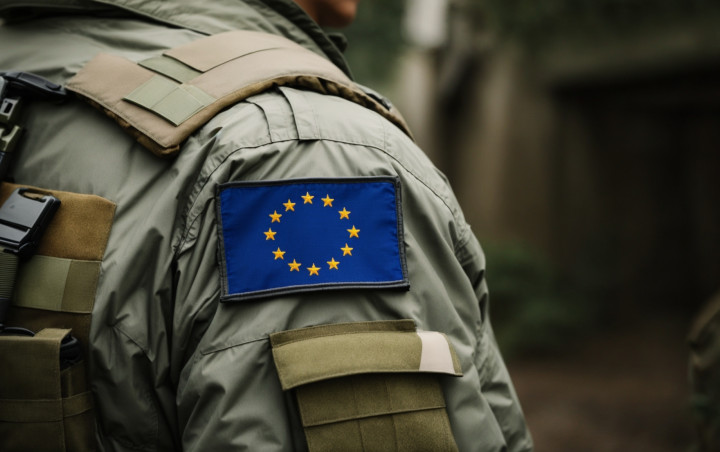An autonomous military & civil defence capability

Reform and merge the EDA and the defence-industrial elements of the European Commission (e.g. DG DEFIS) into a European Ministry of Defence (EUMD) creating a centralised institution responsible for overseeing European defence efforts, including strategy, operations, research, procurement, and the Defence Technological and Industrial Base.
Establish a European Military Headquarters (EMHQ) responsible for drafting strategy and making key operational decisions regarding the operations of EU military units, particularly the RDC and ERF. It will operate under the EUMD and should be supported by a European Military Academy (EMA) which will educate, train and exchange a generation of personnel with a joint military culture.
In the short term, reinforce regional specialisation in specific branches (e.g. air, land, sea) and capabilities (e.g. cyber, amphibious, air assault). This will incentivise the development of comparative advantages and increase the cost-effectiveness and interoperability of EU militaries. At the same time, encourage and standardise best practices on regional integration of national units at the operational level, e.g. on the example of Franco-German and Dutch-German units. This will contribute to a shared military culture and operational effectiveness.
In the medium term, develop joint EU military capabilities by ensuring the Rapid Deployment Capacity (RDC) is ready for deployment by 2025, and further expanding it by adding more mission profiles, providing it with standing and harmonised equipment and EU staff. In addition, the EU should create a standing European Response Force (ERF) of 60,000 personnel equipped with the highest spectrum of land, air, naval and space assets. Its core purpose is as an initial intervention force to respond to threats to EU territorial integrity, complementing national militaries. This capability will be available with priority for the EU, and second priority for NATO. The EMA will train the personnel of the RDC and ERF.
Establish immediate EU joint military capabilities amongst a coalition of the willing by creating an agreement accessible to all EU members that constitutes a steering committee, with the necessary powers, which can establish integrated EU military units, where decisions are taken by a qualified majority and in coordination with NATO. Such units will be put under the authority of the reformed European Government as specified in Act 7. This will be a more rapid initial step towards the long-term EU-wide integration of armed forces, reflecting the urgency of the immediate need for an autonomous EU military capability amongst willing member states.
Expand the European Solidarity Corps into an ambitious voluntary EU civil and military service programme funded by the EU and complementary to existing national military and/or civil public services.
Create grassroots Initiatives for Resilience through a program aimed at supporting and financing grassroots initiatives dedicated to digital and civic resilience against hybrid threats. These initiatives will counteract activities such as election interference campaigns conducted by "troll factories" from third countries.
Create a European civil and military branch for disaster intervention expanding RescEU in scope and powers, modelled after the Spanish Unidad Militar de Emergencias and the German Technisches Hilfwerk, that intervenes in all types of man-made and natural disasters and catastrophes. We need to create the competencies in our societies to adapt to climate change and conflicts and a European military branch with civil society institutions across the Union would allow to building of "brand equity" for the European Armed Forces and distinguish the EU from other geopolitical actors by carrying a positive and defence-oriented messaging.